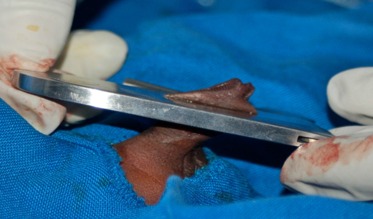Male circumcision is widely practiced for religious and traditional reasons, often within the first two weeks after birth or at the beginning of adolescence as a rite of passage into adulthood.
As a medical procedure, it is performed to treat problems involving the foreskin and as a means to help prevent some diseases.
Recently, three randomized controlled trials have convincingly demonstrated that male circumcision reduces female to male heterosexual transmission of HIV.
Circumcision
Is the medical surgical removal of the foreskin that covers the head of the glans in:
Adult men
Adolescent boys
Infant boys
Practiced for centuries for religious or traditional reasons.
Why Infants?
Easier procedure to teach and learn
Suturing rarely needed
Faster healing
Lower complication rates
Tissue less vascular
Completely healed prior to sexual activity
Procedure not complicated by erections
Decreased risk of urinary tract infections in first 6 months of life

